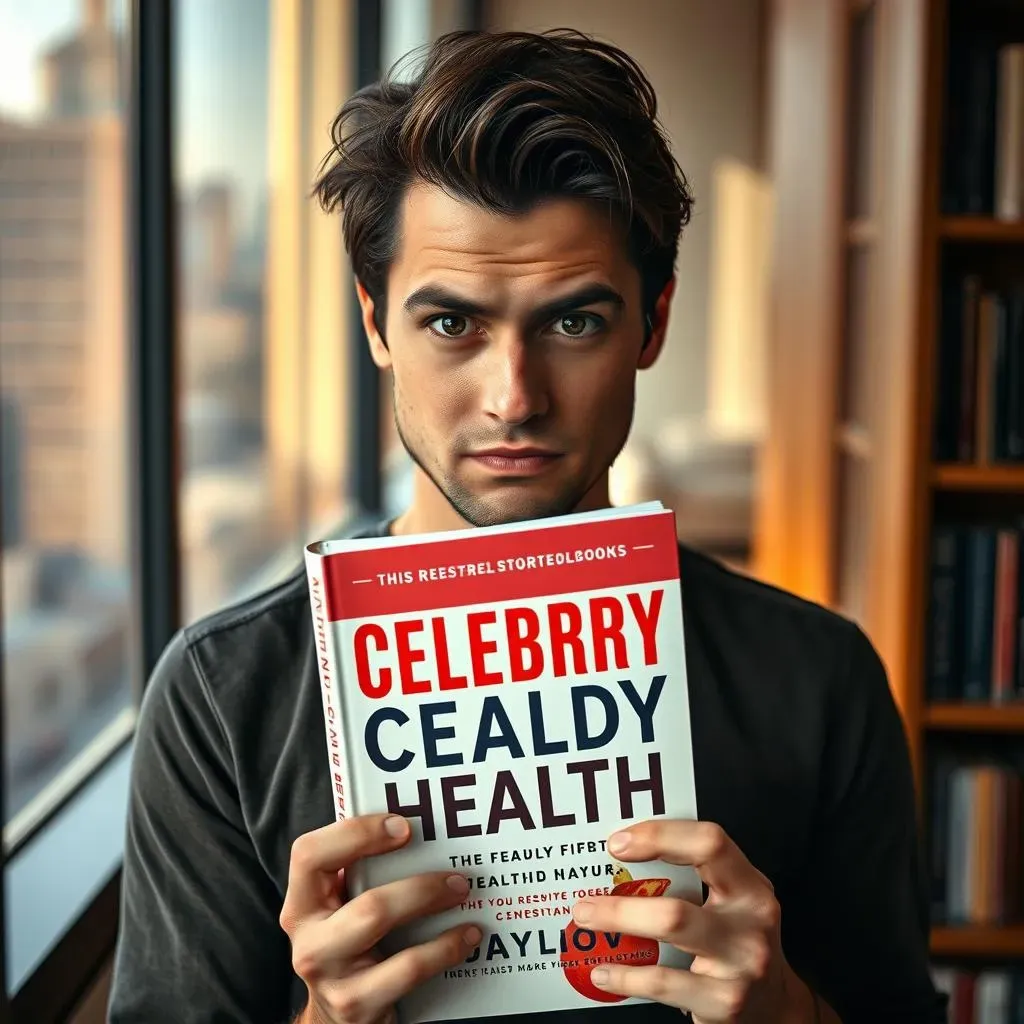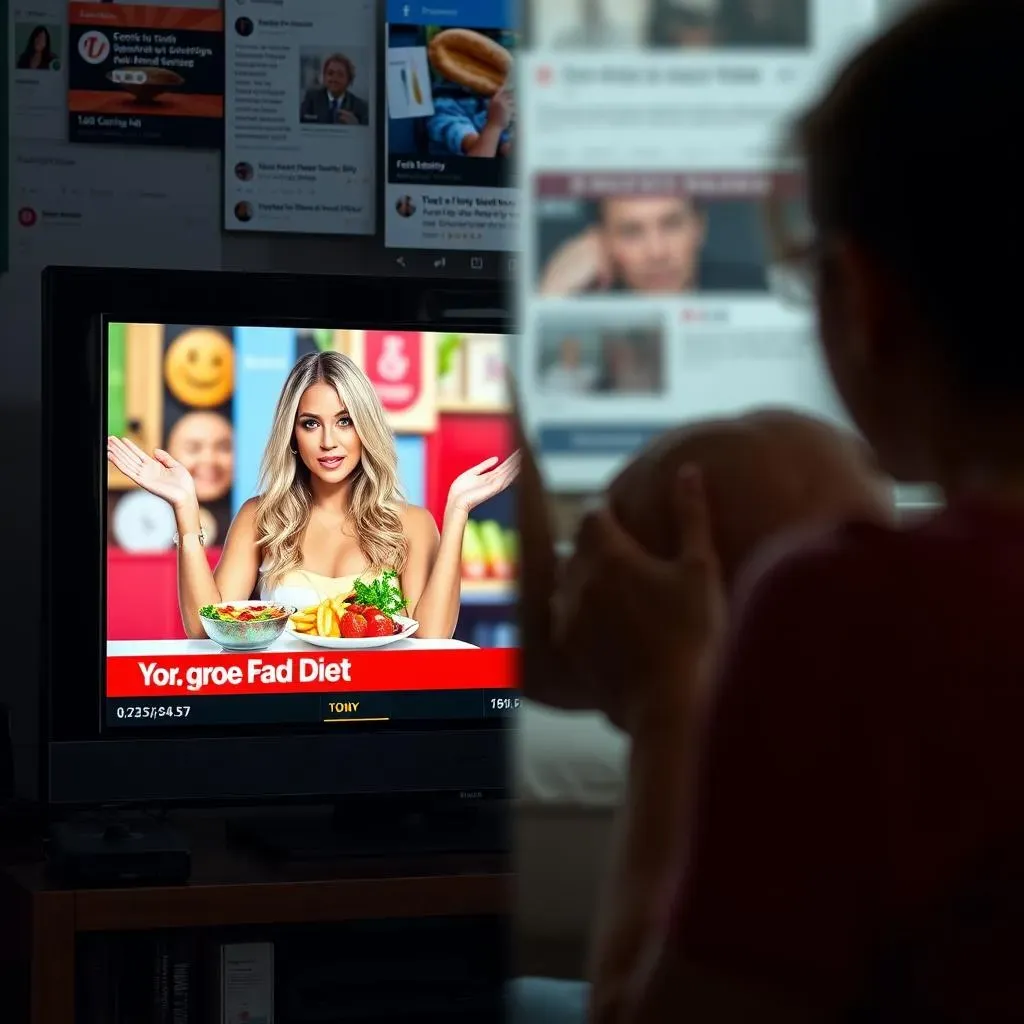Table of Contents
Are you intrigued by celebrity health and wellness advice? Do you find yourself wondering if those glossy book covers promise genuine health improvements or just another fleeting trend? Navigating the world of celebrity health books can be tricky, with so many promises and endorsements. That's why we've created this comprehensive guide to celebrity health books reviews. This article will equip you with the tools to critically evaluate the claims made in these books. We'll explore how to spot misleading information, identify reliable sources of celebrity health books reviews, and understand the broader impact of celebrity endorsements on public health. Prepare to become a more informed consumer of health information, able to distinguish fact from fiction. Get ready to dive into the world of celebrity health books reviews and learn how to make healthier choices for yourself!
Celebrity Health Books Reviews: Separating Fact from Fiction

Celebrity Health Books Reviews: Separating Fact from Fiction
The Allure of Celebrity Endorsements
Let's be honest, a book cover featuring a glowing celebrity promising a miracle cure or a life-changing diet is incredibly tempting. We're drawn to their success, their seemingly effortless lifestyles, and the implied promise of easy solutions. But before you rush to buy, remember that celebrities aren't medical professionals. Their endorsements are often financially motivated, and their experiences might not be applicable to the general population. A celebrity's glowing review doesn't automatically translate to scientific validity. Think of it like this: just because a famous actor loves a certain brand of socks doesn't mean those socks will magically make *you* a better person.
It's crucial to approach celebrity health books with a healthy dose of skepticism. Don't let the glamorous presentation blind you to the potential lack of scientific backing. Look beyond the celebrity endorsement and focus on the actual content. Is the advice supported by credible research? Are there references to peer-reviewed studies? Does the book promote a balanced approach to health or does it push extreme diets or quick fixes? These are vital questions to ask before investing your time and money.
Red Flag | Green Flag |
|---|---|
Promises of quick fixes or miracle cures | References to peer-reviewed studies |
Lack of scientific evidence | Recommendations from qualified professionals |
Extreme dietary restrictions | Balanced and sustainable approach |
Unpacking the Marketing: Beyond the Glamor
Celebrity health books are often masterclasses in marketing. The books themselves might be well-designed, with appealing visuals and compelling narratives. However, the marketing often overshadows the actual scientific merit. The book’s cover, the author’s biography, and even the title itself are designed to grab your attention and convince you of the product’s worth. But remember, slick marketing doesn't equate to sound health advice.
Remember that many celebrity health books are designed to sell a product, not necessarily to promote genuine health and wellbeing. Look for books that prioritize evidence-based information over flashy claims. Consider the author's credentials – are they qualified health professionals? Do their recommendations align with current scientific understanding? If the book feels more like an infomercial than a guide to improving your health, it might be best to put it back on the shelf.
- Check the author's qualifications.
- Look for evidence-based claims, not just testimonials.
- Be wary of overly enthusiastic language and promises.
Analyzing Celebrity Health Book Claims: A Critical Look

Analyzing Celebrity Health Book Claims: A Critical Look
Analyzing Celebrity Health Book Claims: A Critical Look
So, you're diving into the world of celebrity health book claims? Fantastic! But remember, it's a minefield out there. We need to approach these books with a critical eye, not just as fans but as researchers. Think of it like this: a celebrity's endorsement is like a recommendation from a friend – it might be helpful, but it’s not a scientific study. We need to go beyond the glitz and glamour and examine the actual claims. Are they backed by evidence? Do they align with current medical consensus? Are there any potential conflicts of interest? These are the questions we must ask.
Let's start with the basics. A good place to begin is by looking at the author's credentials. Are they a qualified health professional, or are they simply leveraging their fame to sell a product? Next, we need to examine the claims themselves. Are they overly simplistic? Do they promise unrealistic results? Be wary of any statements that sound too good to be true, because they probably are. Look for evidence-based claims, not just testimonials. Finally, always cross-reference information with reputable sources like the Mayo Clinic, the NHS, or the CDC. Don't rely solely on a single source, especially one with a financial stake in the outcome.
Claim Type | Critical Analysis Questions |
|---|---|
Weight loss claims | Is the weight loss sustainable? What are the potential side effects? Is this advice tailored to specific individuals? |
Dietary recommendations | Is this diet balanced and nutritionally complete? Does it align with current dietary guidelines? Are there potential risks associated with this plan? |
Fitness or exercise routines | Is the routine safe for all fitness levels? Are there modifications for different abilities? Does it promote a holistic approach to fitness? |
Another thing to consider is the overall tone and language used in the book. Does it promote a balanced approach to health, or does it demonize certain foods or activities? Look for books that emphasize a holistic approach to wellbeing, focusing on sustainable lifestyle changes rather than quick fixes. Remember, lasting change comes from consistent effort and a balanced approach, not from magical cures or fad diets.
Lastly, don't forget about the power of peer review. Look for books that have been reviewed by reputable health professionals or organizations. These reviews can offer valuable insights and help you separate fact from fiction. And finally, remember that your health is unique. What works for one person may not work for another. Always consult with your doctor or a qualified healthcare professional before making significant changes to your diet or exercise routine.
- Verify the author's qualifications.
- Scrutinize claims for scientific backing.
- Assess the overall tone and message of the book.
- Look for peer reviews and expert opinions.
- Consult your healthcare provider before making changes.
The Impact of Celebrity Health Books Reviews on Public Health

The Impact of Celebrity Health Books Reviews on Public Health
Misinformation and the Spread of Fad Diets
Celebrity endorsements can significantly influence public health, often in detrimental ways. When a famous personality promotes a specific diet or wellness practice, their large following might blindly adopt it without critical evaluation. This can lead to the widespread adoption of potentially harmful fad diets, often lacking scientific backing. Think of the countless detox teas or restrictive eating plans that have gained popularity solely due to celebrity endorsements. These trends often prioritize quick weight loss over long-term health and can result in nutritional deficiencies, disordered eating, and other negative health consequences.
The impact is amplified by social media, where quick snippets of advice are easily shared and often taken out of context. The lack of proper scientific scrutiny in these platforms exacerbates the problem, leading to the spread of misinformation and potentially dangerous health practices. This highlights the critical need for media literacy and responsible consumption of online health information. We must be discerning consumers, verifying information before acting on it, and seeking guidance from qualified healthcare professionals.
Celebrity Endorsed Trend | Potential Negative Health Consequences |
|---|---|
Detox Teas | Diarrhea, dehydration, electrolyte imbalance |
Extreme Calorie Restriction | Nutritional deficiencies, muscle loss, metabolic slowdown |
Supplements without scientific backing | Unforeseen drug interactions, liver damage |
The Role of Celebrity Influence on Health Choices
Celebrities wield immense influence on their fans' health decisions. Their perceived authority, often unrelated to medical expertise, can lead individuals to trust their recommendations implicitly. This is particularly concerning when the advice is inaccurate or potentially harmful. For instance, a celebrity promoting a specific brand of weight-loss supplement might not fully disclose the potential risks or side effects associated with its use. This can lead to individuals making ill-informed choices that could negatively affect their health.
The problem is compounded by the fact that many people don't have the time or resources to critically evaluate every piece of health information they encounter. They may rely on the perceived trustworthiness of a celebrity endorsement as a shortcut to making decisions about their health. This highlights the need for greater media literacy and critical thinking skills among the general public. We need to be empowered to question claims made by celebrities, even those we admire, and seek out credible information from verified sources.
- Increased reliance on celebrity opinions over medical advice
- Spread of misinformation and unsubstantiated claims
- Potential for financial conflicts of interest in endorsements
- Difficulty in discerning credible sources from unreliable ones
Promoting Responsible Health Information Consumption
Given the significant impact of celebrity health books reviews on public health, it's crucial to promote responsible consumption of health information. This involves equipping individuals with the tools and knowledge to critically evaluate claims, differentiate between credible and unreliable sources, and make informed decisions about their own health. Education plays a vital role in this process, teaching people to identify red flags in marketing, recognize potential conflicts of interest, and seek guidance from qualified healthcare professionals.
Furthermore, media outlets and social media platforms have a responsibility to promote accurate and evidence-based health information. They should implement stricter guidelines for the promotion of health products and services, especially those endorsed by celebrities. This might involve requiring disclosure of financial relationships, verifying claims with scientific evidence, and promoting media literacy initiatives. By fostering a culture of critical thinking and responsible information sharing, we can mitigate the negative impact of celebrity endorsements and encourage informed health choices.
Finding Reliable Celebrity Health Books Reviews: A Guide

Finding Reliable Celebrity Health Books Reviews: A Guide
Finding Credible Reviews: Where to Look
So, you're on the hunt for reliable celebrity health books reviews? Excellent! But navigating the vast online landscape can feel like searching for a needle in a haystack. Don't worry; I've got some tips to help you find trustworthy reviews. First, look beyond the celebrity's own website or social media. These platforms are often filled with promotional material, not objective critiques. Instead, seek out independent review sites and health publications. Websites specializing in book reviews, particularly those with a focus on health and wellness, will provide more unbiased perspectives. Think of it like this: you wouldn't trust a restaurant's own website to tell you if their food is any good, would you? You'd look for independent reviews on Yelp or TripAdvisor!
Next, check out reputable health organizations and professional associations. Many organizations publish reviews or recommendations of health-related books. These reviews are often written by qualified experts and adhere to higher standards of accuracy and objectivity. Look for reviews in peer-reviewed journals or medical publications. These sources undergo a rigorous vetting process, ensuring the information is accurate and scientifically sound. Remember, a glowing review from a celebrity doesn't automatically make a book reliable. You need to look for reviews from credible sources that provide a balanced and objective assessment.
Reliable Review Source | Potential Bias |
|---|---|
Independent Book Review Websites | Potential for advertiser influence, but generally less biased than celebrity endorsements |
Health and Wellness Publications | May have editorial biases, but usually backed by editorial standards |
Professional Health Organizations | Minimal bias, high standards of accuracy and scientific rigor |
Pay close attention to the reviewer's credentials. Is the reviewer a qualified health professional (doctor, registered dietitian, etc.)? Their expertise will significantly impact the trustworthiness of their review. Also, look for reviews that cite specific evidence. A good review will not just state that a book is good or bad; it will explain why, referencing scientific studies or other reputable sources. Finally, be aware that even the most credible reviews can have some level of bias. Try to read multiple reviews from different sources to get a well-rounded perspective. The more reviews you read, the clearer the picture will become.
Remember, finding reliable information is key to making informed decisions about your health. Don’t let the allure of celebrity endorsements blind you to the potential risks of following unreliable advice. By carefully evaluating the sources of information, you can make more informed choices and improve your overall wellbeing. Always consult with your doctor or other qualified healthcare professional before making significant changes to your diet or lifestyle. Your health is worth it!
- Check the reviewer's qualifications.
- Look for evidence-based assessments.
- Read multiple reviews from various sources.
- Consult a healthcare professional for personalized advice.